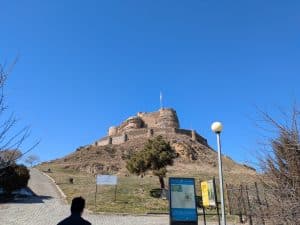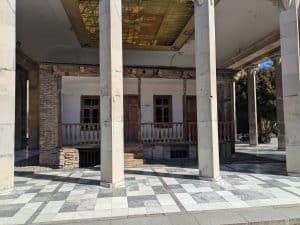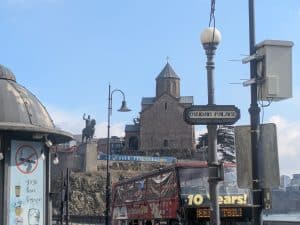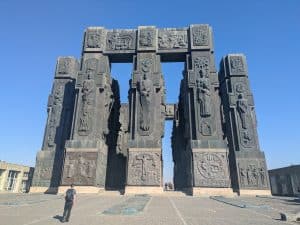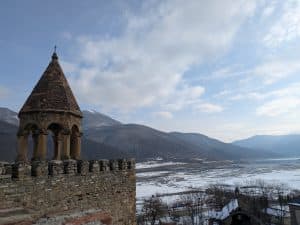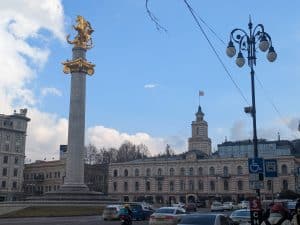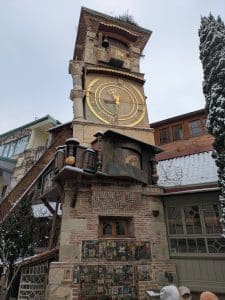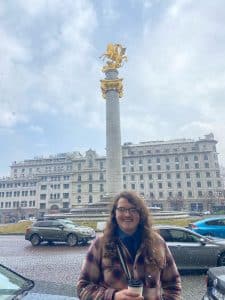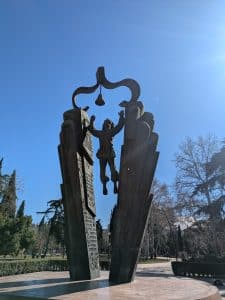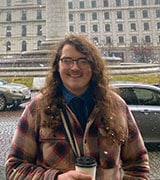Over about one week in early March, SRAS students experience Georgian history, culture, and food. The Spring Break: Georgia program offers a unique opportunity to explore Georgia while meaningfully engaging with locals and building intercultural skills. Read below the experiences of real students who have attended this short but transformative study abroad program!
Ian Malingowski, 2025
Ian Malingowski is an undergraduate history major at Middle Tennessee State University.
I had three goals in signing up for the one-week Spring Break: Georgia program from SRAS. First, I wanted to learn as much about Georgia as possible within that limited time. Second, I planned to enjoy some good Georgian food and take notes for my efforts at replicating its majesty at home. Third, for a research project at school, I needed to look for examples of how Georgian culture behaves in resistance to Russian influence. To accomplish these goals, I set out planned routes in the city wherein I could visit as much as possible at a feverish pace during my free time while also participating in the activities set forth by the SRAS program. However, once actually on the ground, I quickly realized how impossible it was to experience all of Georgia’s bounty within my short stay. Yet, I did accomplish my goals to a large extent and believe that even this short time in Georgia has impacted my professional academic trajectory. I believe it can do the same for others as well.
Our SRAS program started with a guided tour around Tbilisi, intended to introduce us to the city and orient us to facilitate our independent exploration during our free days. On those days, I visited museums including the Georgian National Museum (a great overview to Georgian history) and the Open-Air Museum of Ethnography (a window into how Georgians have lived across Georgia over the last centuries). I even made an independent day trip to visit the Stalin Museum (Georgia still has a complicated relationship with its native son) and the Gori Fortress (a glimpse into Georgia’s medieval history and stuggles with the Ottoman Empire).
On my way to these locations, I took great care to visit monuments, as they act as cultural and historical touchstones. Monuments can give a much greater understanding of the values a society wishes to honor and espouse. For example, the Chronicles of Georgia monument in Tbilisi acts as a microcosm of Georgia’s existence, with depictions of Georgian historical, political, and religious figures placed in concert with depictions of the life of Jesus. Overall, the monument shows the Georgians as a people whose history and religion is deeply intertwined. The monument was originally begun in 1985, but has seen many delays due to the collapse of the Soviet Union and later the 2008 Russo-Georgian War, both of which placed considerable strain on Georgia’s budget. Work is still proceeding slowly.
My easiest goal to achieve was to appreciate Georgian cuisine. The hotel’s breakfast provided a playground to try a variety of foods created by a kind staff that was accommodating to my clumsy attempts to converse in Russian, this was perhaps lucky as many Georgians, especially the younger generation, prefer to speak English now. SRAS also arranged trips to the famous mountains of Kazbegi and to the Kakheti wine country. These trips included lunches featuring the local cuisine. Even more importantly, SRAS provided a cooking workshop where a Georgian restaurant owner instructed us on how to properly make khachapuri (a form of cheese bread) and khinkali (dumplings). This experience, alongside others throughout the program, provided useful tips for my future cooking endeavors and filled me with so much joy.
My most complicated goal involved my research regarding Georgian culture as a form of opposition. The use of Georgian language itself acts as a point of cultural resistance. Russian once dominated Georgia under the USSR. Today, however, Georgian, a unique language with its own alphabet, appears prominently, with Russian relegated to the lips of foreigners, tourist industry workers and mostly older Georgians within shops. English, spoken and on signage, acts as projection of modernity and “western-ness.” Younger Georgians especially prefer English as a second language. Graffiti, often in English, also afforded insight to youth culture expressing support for Georgia’s EU ascension bid and offering various colorful words directly to Russian leader Vladimir Putin. I also noted many other instances that I am now working into a formal research paper.
Many of my experiences happened because of careful planning, but so many more came as welcome surprises after getting lost or befriending a local or other encounters. Chance led me to hike to Tbilisi’s reconstructed Svan Tower and participate in a snowball fight with locals, in which my team was somehow protected by a pack of dogs. Through these events, I experienced much more of Georgia during my short visit than I had anticipated, even as I could see that there was so much more to explore if I had more time.
Through the pursuits of my initial goals in Georgia, I have come away with a great appreciation for the country and an appetite for more. My practical experiences will assist me in developing my research skills as I pursue a degree in history focused on how minor powers in Eastern Europe respond to external factors such as larger imperialistic powers or to large foreign diasporas. By visiting Georgia, a country with many Russian speakers, I have been provided a means to nurture my language acquisition and recognize weaknesses. Studying abroad provides a broad base to improve oneself, and I highly recommend it to anyone, regardless of educational pursuit. I would like to thank SRAS for providing me with this opportunity, and I hope to return to Georgia in the future.
You’ll Also Love

International Eateries in Tbilisi: Eating around the World in Georgia
Tbilisi is rapidly becoming a hub for international food culture. Thus, while Georgia is known for its incredible local cuisine that simply has to be tried and savored as much as possible while you are there, there is also a world of a other great food cooked by amazing local chefs. Plus, nearly all of […]
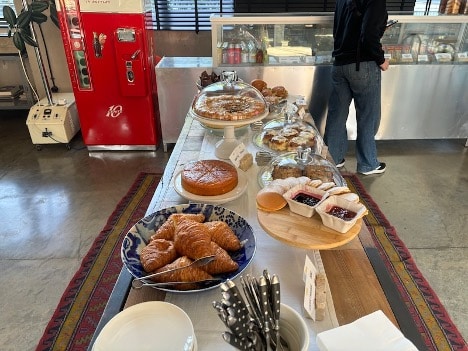
Staying at Fabrika Hostel in Tbilisi
Fabrika Hostel is a large and centrally located hostel in Tbilisi. Students on regular SRAS programs in Georgia stay at homestays while in Georgia. However, SRAS recently hosted a group of students on a short-term faculty led program from University of Richmond who chose a hostel stay for their time abroad. The following was written […]
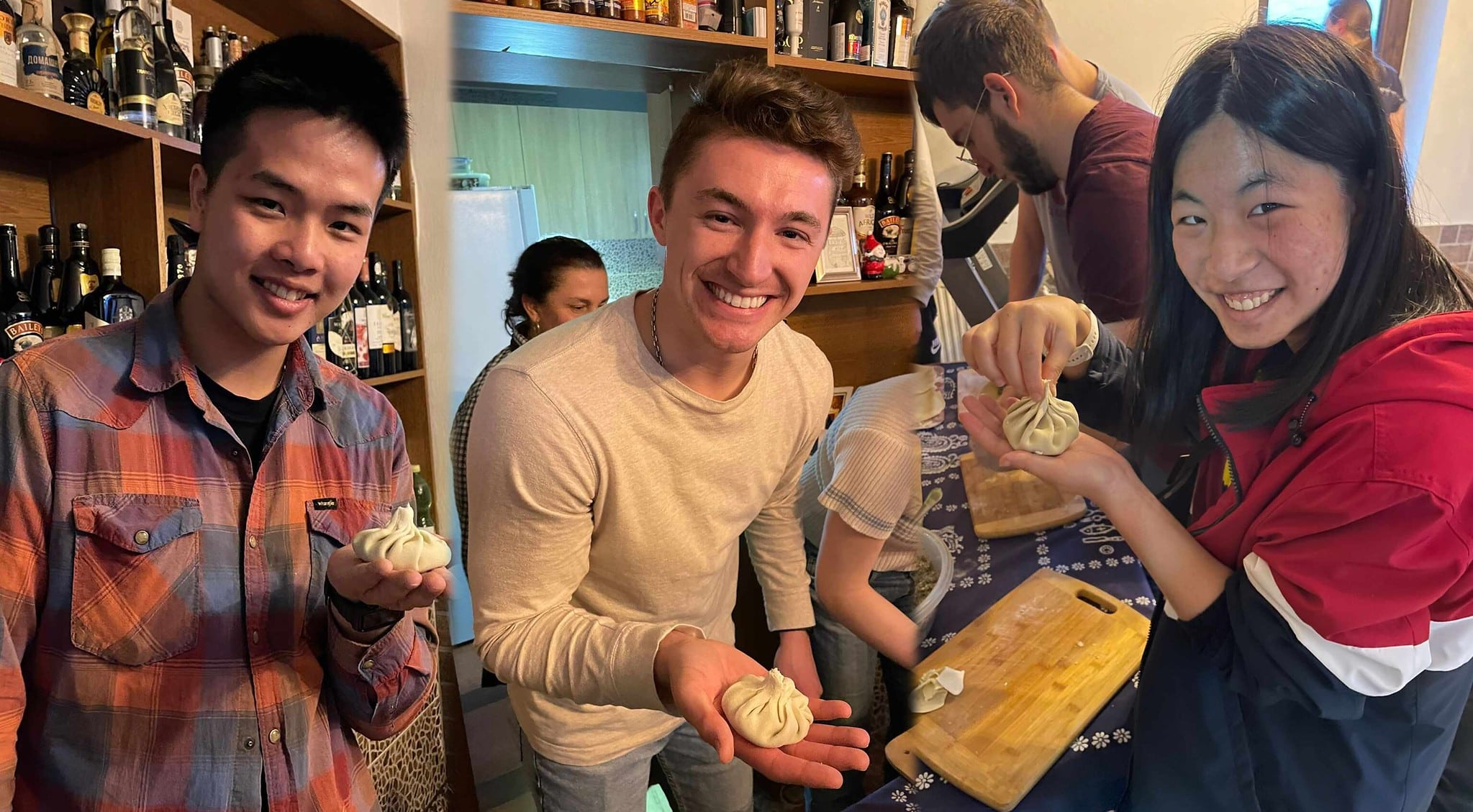
Spring Break: Georgia Program Review
Over about one week in early March, SRAS students experience Georgian history, culture, and food. The Spring Break: Georgia program offers a unique opportunity to explore Georgia while meaningfully engaging with locals and building intercultural skills. Read below the experiences of real students who have attended this short but transformative study abroad program! Ian […]
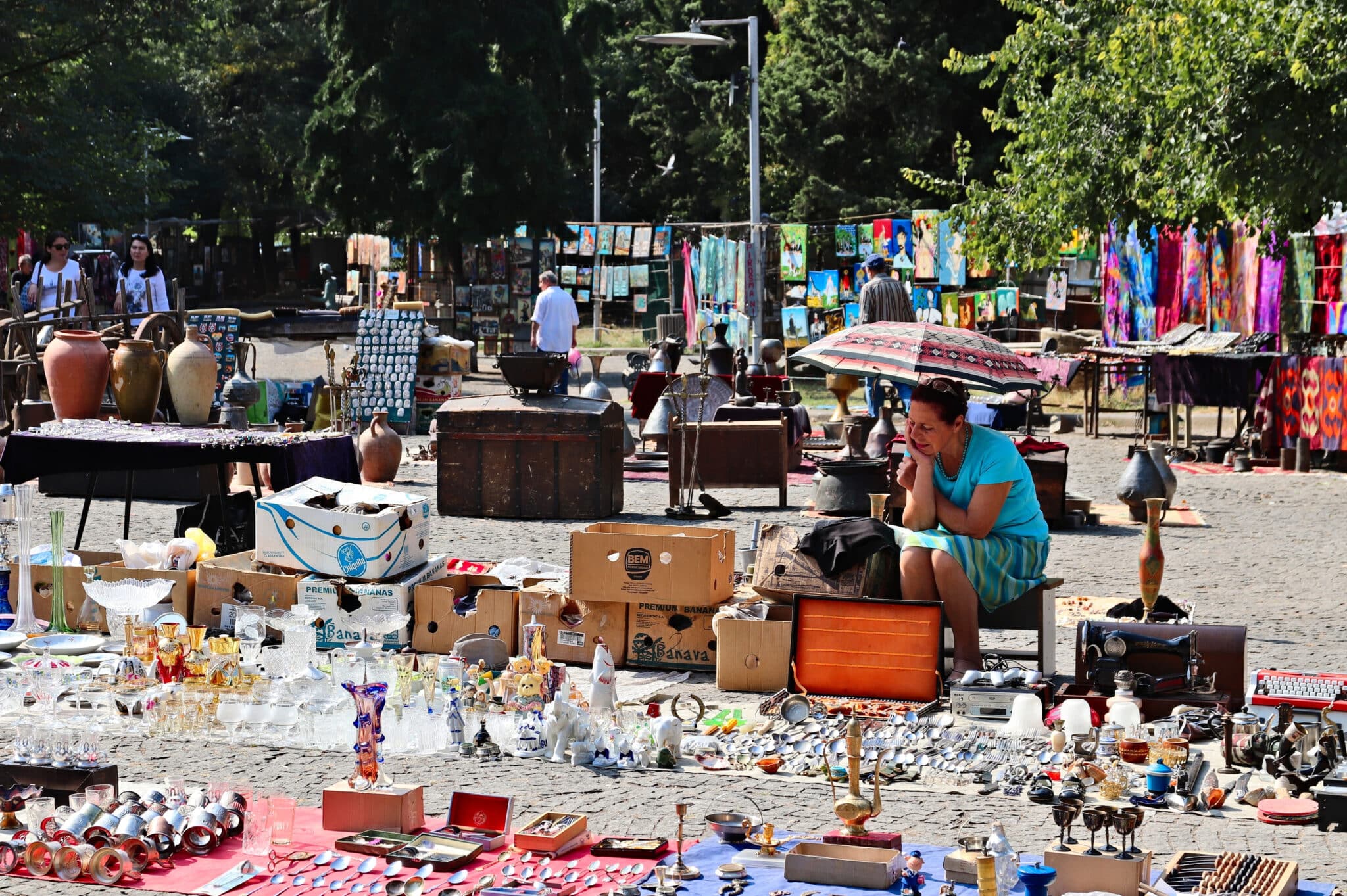
Thrifting in Tbilisi
I’ve been an avid thrifter since I was 15 – and am well acquainted with all sorts of thrifting locations in the US. However, I was fairly unprepared for the thrifting scene when I arrived in Tbilisi for my study abroad program. I had done just enough research to know that thrifting existed here, but […]
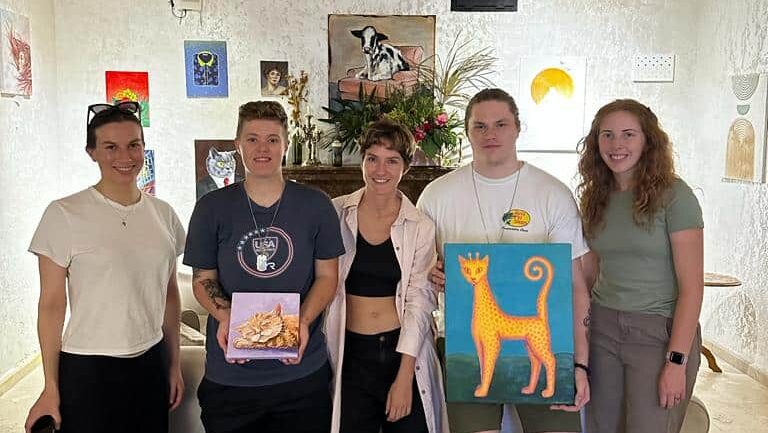
Batumi Trip for SRAS Students in Tbilisi
SRAS students studying in Tbilisi take a weekend trip to see Batumi, a major resort city and port along Georgia’s Black Sea coast. Over three days and two nights, we had peer coaching, a city tour, a lecture for ICON students, and plenty of free time to explore the city. I greatly enjoyed the food […]

